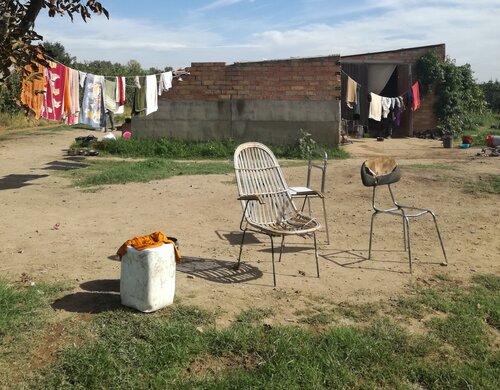Increasing translation and cultural mediation services and intercultural health training are key to improving the health of seasonal migrant farm workers
According to research led by researchers from the University of Lleida and the Institute for Biomedical Research of Lleida published in the journal Health Expectations
Increasing translation and cultural mediation services and implementing cultural awareness programmes for health professionals, in order to offer culturally adapted care, would improve the health of seasonal migrant workers. This is according to research led by researchers from the University of Lleida (UdL) and the Institute of Biomedical Research of Lleida (IRBLleida), published in the journal Health Expectactions. The study, led from Lleida, also involved staff from the Institute for Global Health (ISGLobal) and the universities of Barcelona, La Rioja, the Basque Country, Almeria and Murcia.
The researchers conducted a qualitative study based on semi-structured interviews with 92 professionals such as NGO workers, health workers, trade union members, and social services involved in caring for seasonal workers in Catalonia, Andalusia, La Rioja and Murcia.
'Seasonal migrant farm workers represent an essential part of the workforce in Spain's agricultural sector, but they face precarious working conditions, housing insecurity and barriers to accessing health services,' explained GRECS researcher and UdL lecturer Erica Briones.
The research has identified barriers encountered by seasonal workers, such as language problems, cultural differences, lack of knowledge of the Spanish health system and precarious working and living conditions. 'In addition, it is essential to address structural inequalities, such as living and working conditions, social exclusion and discrimination, as these problems go beyond the health field,' added Briones.
This work is part of a broader project that includes other research on migrant farm workers, the AGROMISALUD project funded by the Instituto de Salud Carlos III. In this sense, research recently published in the journal PLoS One shows that the pandemic increased efforts and collaboration between people, but also intensified inequalities and highlighted the lack of preparedness of institutions to care for this vulnerable group.
'This study highlights the need for a more prepared and equitable system to deal with future health crises,' Briones said. In this case, the research is based on 87 interviews with health and social service professionals and points out that inclusive approaches to health and social services are needed to reduce inequalities and ensure the well-being of all agricultural workers, regardless of their migration status or mobility.
Articles:
van Selm L, Pérez-Urdiales I, Úbeda-Pavia M, Tomás-Mateos J, Jiménez-Lasserrotte MDM, Pastor-Bravo MDM, Requena-Méndez A, Briones-Vozmediano E. Migrant Farmworkers' Acceptability of Health Services in Spain: Barriers and Facilitators Identified by Professionals. Health Expect. 2025 Feb;28(1):e70147. doi: 10.1111/hex.70147. PMID: 39783788; PMCID: PMC11712946.
Úbeda M, Villa-Cordero V, González-Rodríguez A, Andrés-Cabello S, Perez-Urdiales I, Jiménez-Lasserrotte MDM, Pastor-Bravo M, Briones-Vozmediano E. Lessons learned from cross-sectoral collaboration to protect migrant farmworkers during COVID-19 in Spain. PLoS One. 2025 Jan 3;20(1):e0307578. doi: 10.1371/journal.pone.0307578. PMID: 39752620; PMCID: PMC11698522.

The researchers conducted a qualitative study based on semi-structured interviews with 92 professionals such as NGO workers, health workers, trade union members and social service workers. Photo: Luis Alejandro Rodriguez Guerrero






